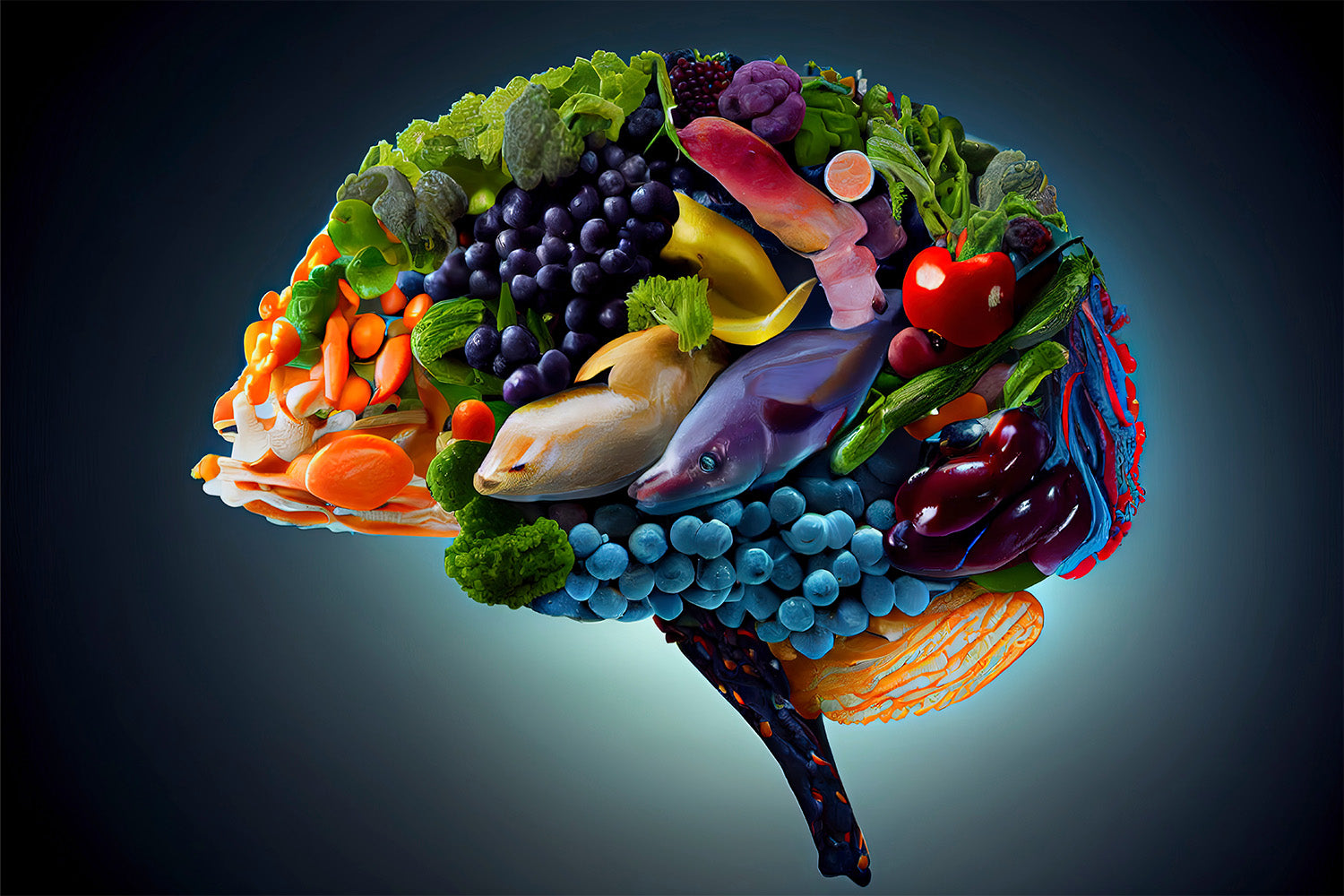Everything You Need To Know About Omega-3 for Pregnancy
Published by Dr. Venn-Watson

Dr. Eric Venn-Watson’s Highlights
The omega fatty acids have received plenty of attention in the past few years. After a generation of avoiding fat, we now know that some fat is good for us.† Omega-3 is one such fatty acid.
Omega-3 helps your body function healthfully, but it also plays a vital role during pregnancy. As important as it is to the health of a developing baby, it’s also critically important for the pregnant mother.
What Is Omega-3?
Omega-3 nutrients include essential fatty acids that your body needs to function properly, but can’t make enough of on its own. This means that some omega-3s must come from your diet or a supplement.
There are three main types of omega-3s:
- ALA. ALA stands for alpha-linolenic acid. This is the most common fatty acid found in the American diet. Your body can convert ALA to DHA and EPA, but the process isn’t very efficient. ALA is typically broken down by the body to be used as a source of energy. ALA is found in foods like flaxseed, canola oil, walnuts, and soybeans.
- DHA. DHA stands for docosahexaenoic acid. It is the most important of the three omega-3 fatty acids. It plays a major role in brain and eye health, and keeps your central nervous system running smoothly. DHA may be important, but it’s usually not as abundant in our bodies. It is found mostly in fatty fish like salmon, tuna, sardines, anchovies, and herring. Some land animals and dairy products also contain DHA.
- EPA. EPA stands for eicosapentaenoic acid. It’s also found in fatty, cold-water fish. Some EPA can be converted to DHA. EPA plays a vital role in regulating mood and may even support your body against inflammation.
Why Do We Need Omega-3?
The three omega-3 fatty acids help regulate hormone-like structures in our bodies called prostaglandins. These structures control functions like blood pressure, nervous system function, balanced immunity, healthy kidney function, and digestion. Without omega-3 fatty acids, you’ll begin to see these functions break down.
Simply taking omega-3 fatty acids may not be enough to support your health and wellness. You’ll also need to follow a balanced diet and get plenty of exercise.
Omega-3 and Pregnancy
Omega-3s are important during pregnancy. If you recently became pregnant, your obstetrician likely placed you on a DHA supplement. Here’s why.
DHA and EPA During Pregnancy
DHA is crucial to your developing baby. It is a major building block of the brain, eye, and nervous system. Because many American diets are deficient in DHA, it’s important you get even more DHA when you’re pregnant.
Both EPA and DHA promote the healthy birth weight of your baby and support proper gestational length. Babies that are born deficient in EPA and DHA may have low birth weight and developmental issues that can follow them throughout childhood.
Many children who do not get enough omega-3 fatty acids in-utero suffer from attention and focus disorders and can have trouble with language skills.
DHA also plays a role in ensuring your baby’s immune system develops properly. During the third trimester, your baby’s brain development reaches a peak and immune responses begin to develop. DHA helps immune responses develop properly.
Omega-3 For the Pregnant Mother
Omega-3 isn’t just good for your developing baby, it’s important for your health and wellbeing. DHA and EPA both support positive mood and overall sense of wellbeing in pregnant mothers, and also help facilitate healthy labor and delivery.
Postpartum, omega-3 continues to help support mood and is especially important for mothers who develop postpartum mood disorders. While breastfeeding, taking an omega-3 supplement can help support your milk supply and can ensure your new baby is getting adequate omega-3 fatty acids via your breastmilk.
If you don’t plan to breastfeed, speak to your child’s pediatrician about the best formula options and make sure you’re using one that contains DHA.
Sources of Omega-3 While Pregnant
It’s common knowledge that pregnant women should be extra diligent about avoiding possible sources of mercury. Mercury is a toxin to any person, and high levels of mercury can cause serious health problems.
If your baby is exposed to mercury in-utero, they can develop brain damage, hearing, and vision problems. As such, pregnant women should avoid fish sources of omega-3. Safe Catch Tuna, which has been tested for mercury, is the only safe fish option.
If you’re avoiding fish, you may decide to get your omega-3 from flaxseed. Unfortunately, omega-3 from flaxseed, walnuts, and chia seeds only contain ALA. Because your developing baby needs EPA and DHA, you’ll need a different source.
Most likely, you’ll get your daily dose of omega-3 fatty acids from a supplement while you are pregnant. Your supplement should contain at least 300 mg of DHA. Your healthcare provider can help you pick a supplement that’s safe and effective while you’re pregnant.
Do I Need Other Supplements While Pregnant?
Your doctor will likely place you on a prenatal vitamin that contains the basics, and omega-3, while you are pregnant.
However, if you want to support your health on a cellular level while you’re pregnant, you can take other pregnancy-safe essential fatty acid supplements.
Do You Need an Omega-3 Supplement if You Aren’t Pregnant?
Maybe. While the American diet does fall short of EPA and DHA, you can definitely change your eating habits to make sure you’re getting more of these fatty acids than simply ALA.
However, if you are on a restrictive diet, like veganism or vegetarianism, you may need to take a supplement.
There is a fatty acid that you may not be getting enough of in your diet, which a growing body of research supports is the next essential fatty acid to have been discovered since the omegas.† This fatty acid may be good for pregnant and non-pregnant people alike.
Pentadecanoic Acid
Pentadecanoic acid, also known as C15:0 (pronounced see-fifteen), is an odd-chain, saturated fatty acid that helps support your body on the cellular level.†*
Maintaining health during pregnancy and beyond starts with our cells. Our cells are the foundation of every organ and system in our body. As we get older, our cells begin to weaken, becoming fragile and leaving us susceptible to premature cellular aging.†*
C15:0 helps support healthy cell function.* Starting with the cell walls, C15:0 dives deep into our cells to fortify them and keep them working properly:†*
- In the cell membranes. C15:0 is a sturdy fatty acid, able to dig into cell membranes and strengthen them, protecting them from external stressors.
- With mitochondrial function. The mitochondria of our cells supply them with energy to carry out necessary cellular functions. As we age, cellular function begins to decline. C15:0 is able to give your cells’ mitochondria a 45% boost in efficiency, which can help them function properly for longer.
- With cellular signalling. By binding to PPAR receptors located all over the body, C15:0 helps regulate processes like sleep, mood, immunity, appetite, and metabolism.†
In summary, C15:0 can support mind and body health, especially important for pregnant women.
Elevate your cells. Elevate your self.
How To Get C15:0 in Your Diet
C15:0 is found in trace amounts in some fatty fish and whole fat dairy products, like whole fat milk and butter. You may be avoiding these types of foods, however, which would make it difficult to get enough C15:0. At the same time, you’d be consuming potentially unhealthy types of fats, like even-chained, saturated fatty acids (think, C16:0).
Thankfully, there’s a solution. Fatty15 is the once-a-day supplement that contains FA15™, the pure powder and vegan-friendly version of C15:0. Fatty15 makes it easy for you to reap the cell-healthy benefits of C15:0.
Is Fatty15 Safe For Pregnancy?
Fatty15 contains just one ingredient: FA15™. This ingredient has GRAS (Generally Recognized as Safe) status, which means it is safe for you to take while pregnant and while breastfeeding.
Taking fatty15 can help you support your body while you are pregnant, and can help keep you supported once your baby arrives.
Omega-3 and Fatty15: The Perfect Combo for Pregnancy and Beyond
You want to make sure you’re supporting your health and wellness simultaneously. Taking omega-3 fatty acids (especially DHA and EPA) are vital to your pregnancy journey and your baby’s development in-utero.
If you’re looking for a way to further support your overall wellness and experience a level of health that starts with your cells, taking fatty15 is another solution. Fatty15 is safe for taking while you’re pregnant, nursing, and beyond.
You’re already making the best decisions you can for your body and your baby — adding fatty15 to your pregnancy health stack can make great sense for you, too.
Sources:
DHA and the Developing CNS|PubMed
Prostaglandins and Inflammation|NCBI

Eric Venn-Watson M.D.
CEO, Co-Founder
Senior Scientist, Co-Founder
Eric is a physician, U.S. Navy veteran, and Co-founder and COO of Seraphina Therapeutics. Eric served over 25 years as a Navy and Marine Corps physician, working with the special forces community to improve their health and fitness. Seraphina Therapeutics is a health and wellness company dedicated to advancing global health through the discovery of essential fatty acids and micronutrient therapeutics.
You May Also Like...
Omega 3 Benefits for Men: Everything You Should Know
It happens to every guy; at some point, you feel like you’re losing your competitive edge. Whether you’re finding it harder to keep up with your kids during a game of basketball or simply finding yourself slower with decision-making, discovering...
Omega 3 for Brain Fog: Does It Help?
We’ve all been there. You walk into a room and forget why you entered. Your car keys can’t be found. You can’t recall the name of the person you just bumped into at the store. These are all symptoms of...


